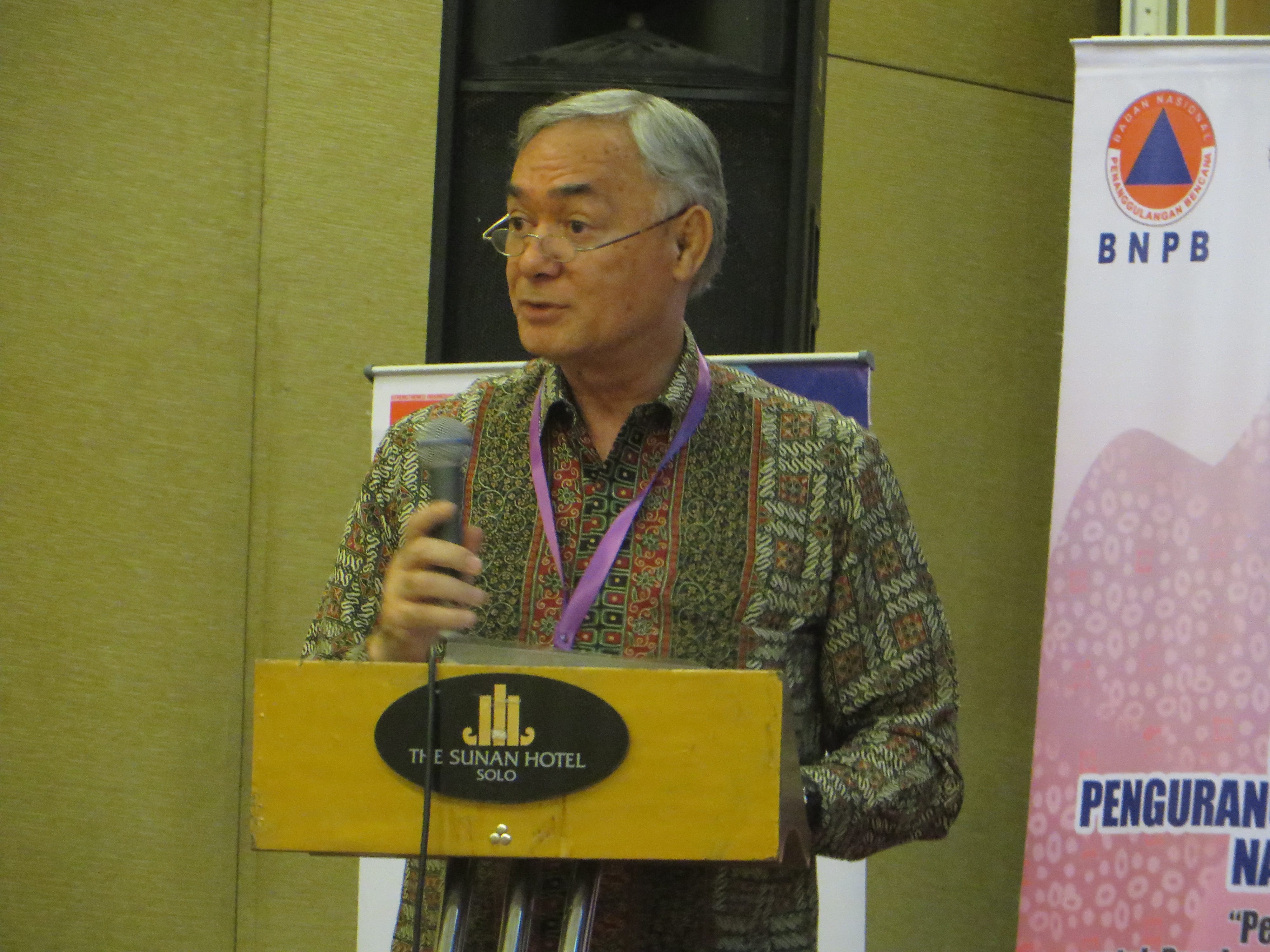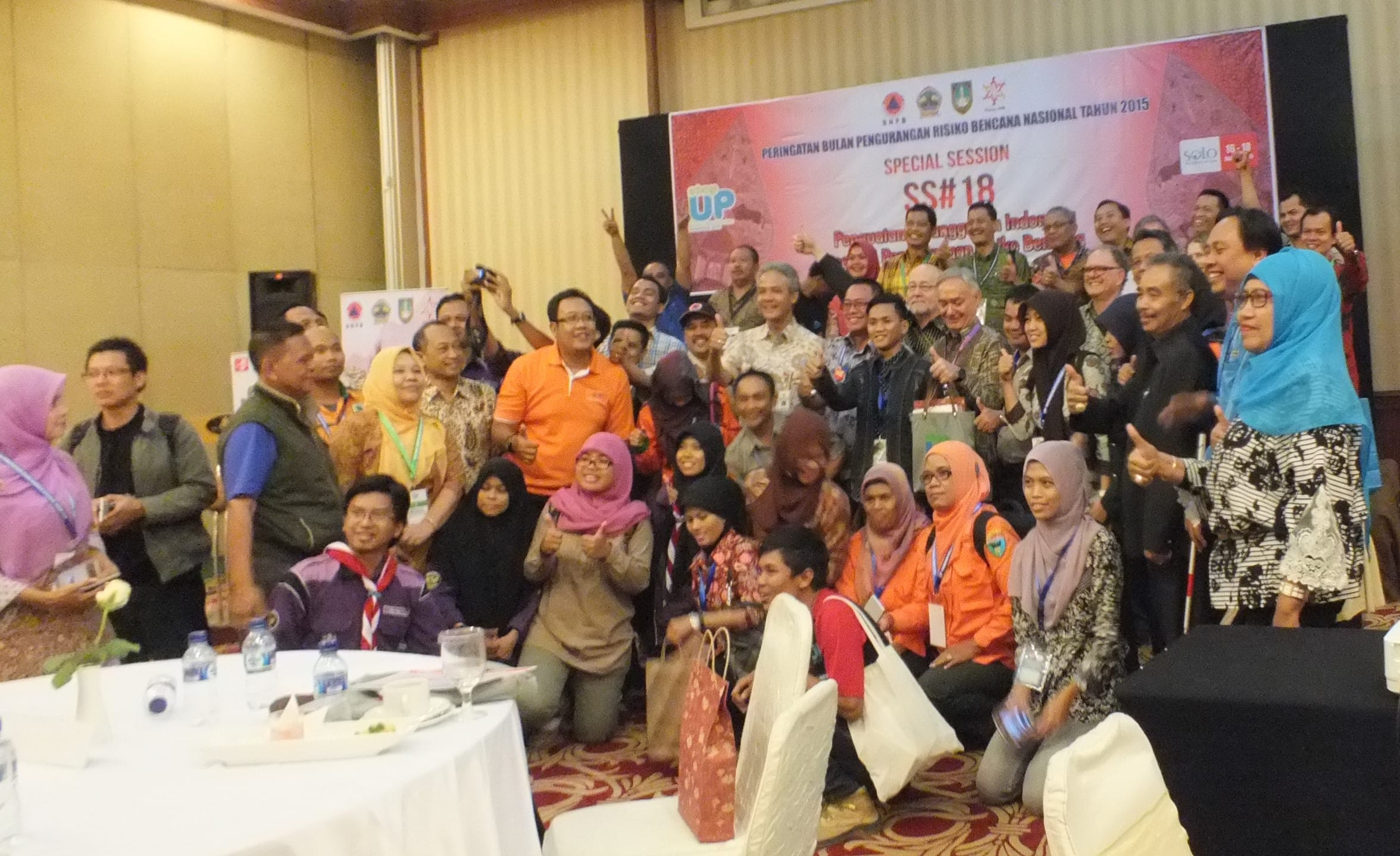Members of the StIRRRD team attended the Indonesian National DRR Awareness Event held over 16th-19th October 2015 in Solo, Central Java.
In 2009, the UN agency UNISDR (United Nations International Strategy for Disaster Reduction) established October 13th as the International Day for Disaster Risk Reduction. This provides an opportunity for countries to promote the culture of disaster risk reduction, including disaster prevention, mitigation and preparedness.
In Indonesia, a focus on DRR has become part of the national DRR agenda and events of some shape or form have been held every year since 2011 – Yogyakarta (2011), Yogyakarta (2012), Mataram (2013) and Bengkulu (2014). This year (2015) it’s Surakarta’s (Solo’s) turn to host the event.
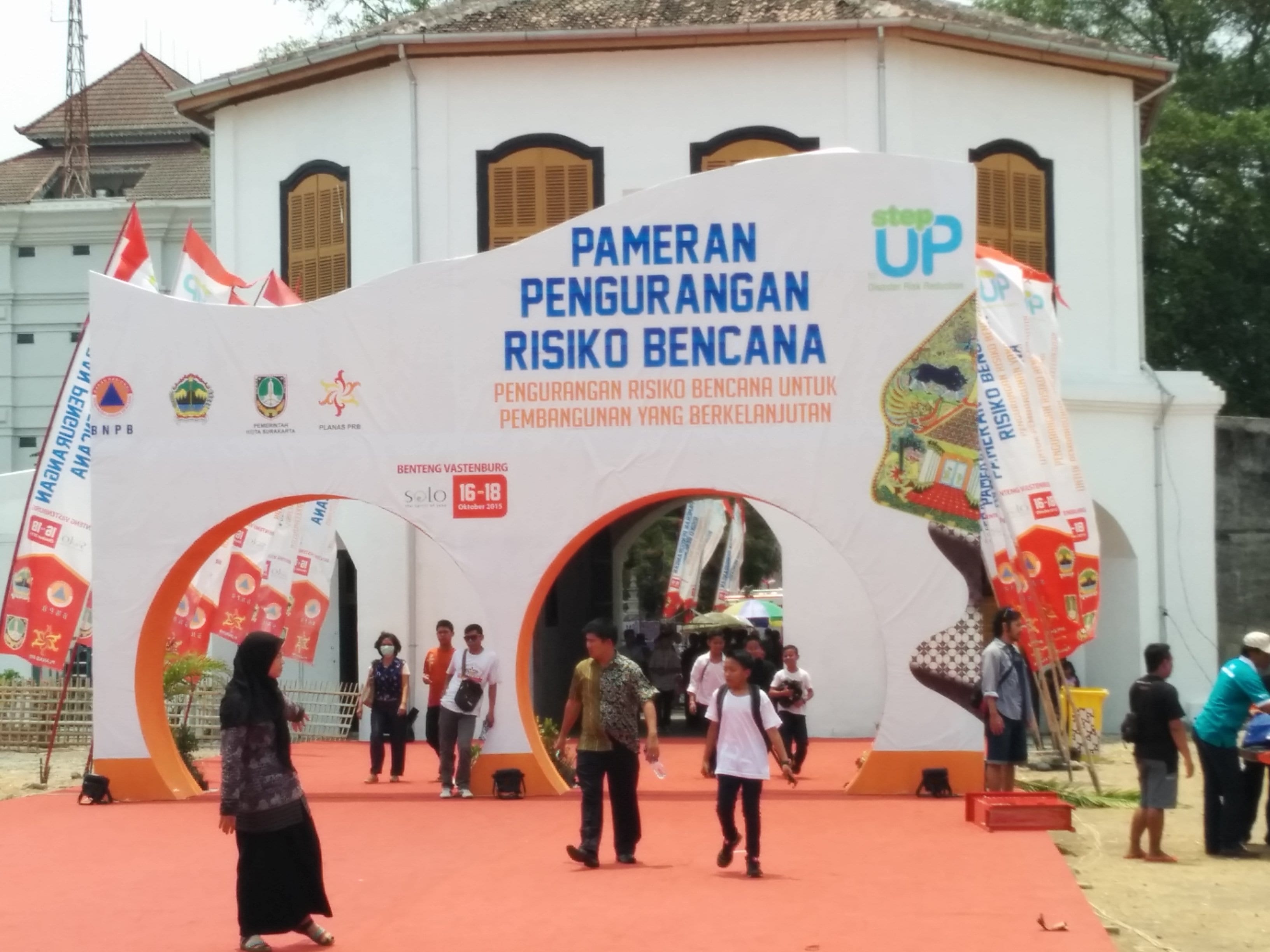
Thousands of people attended the series of events over the weekend which included opening and closing ceremonies, 24 special sessions, 8 side events, 3 working sessions, and an exhibition which gave hundreds of organisations and local agencies a chance to showcase the work they were doing in disaster risk reduction and disaster management.
The StIRRRD programme hosted a Special Session which was attended by the NZ Ambassador to Indonesia (H.E. Dr. Trevor Matheson), the Governor of Central Java (Ganjar Pranowo), the Rektor of Gadjah Mada University (Prof. Dwikorita Karnawati), the Chief Executive of GNS Science (Dr. Mike McWilliams) as well as senior Indonesian Government officials, Dody Ruswandi (BNPB) and Suprayoga Hadi (KDPDTT).
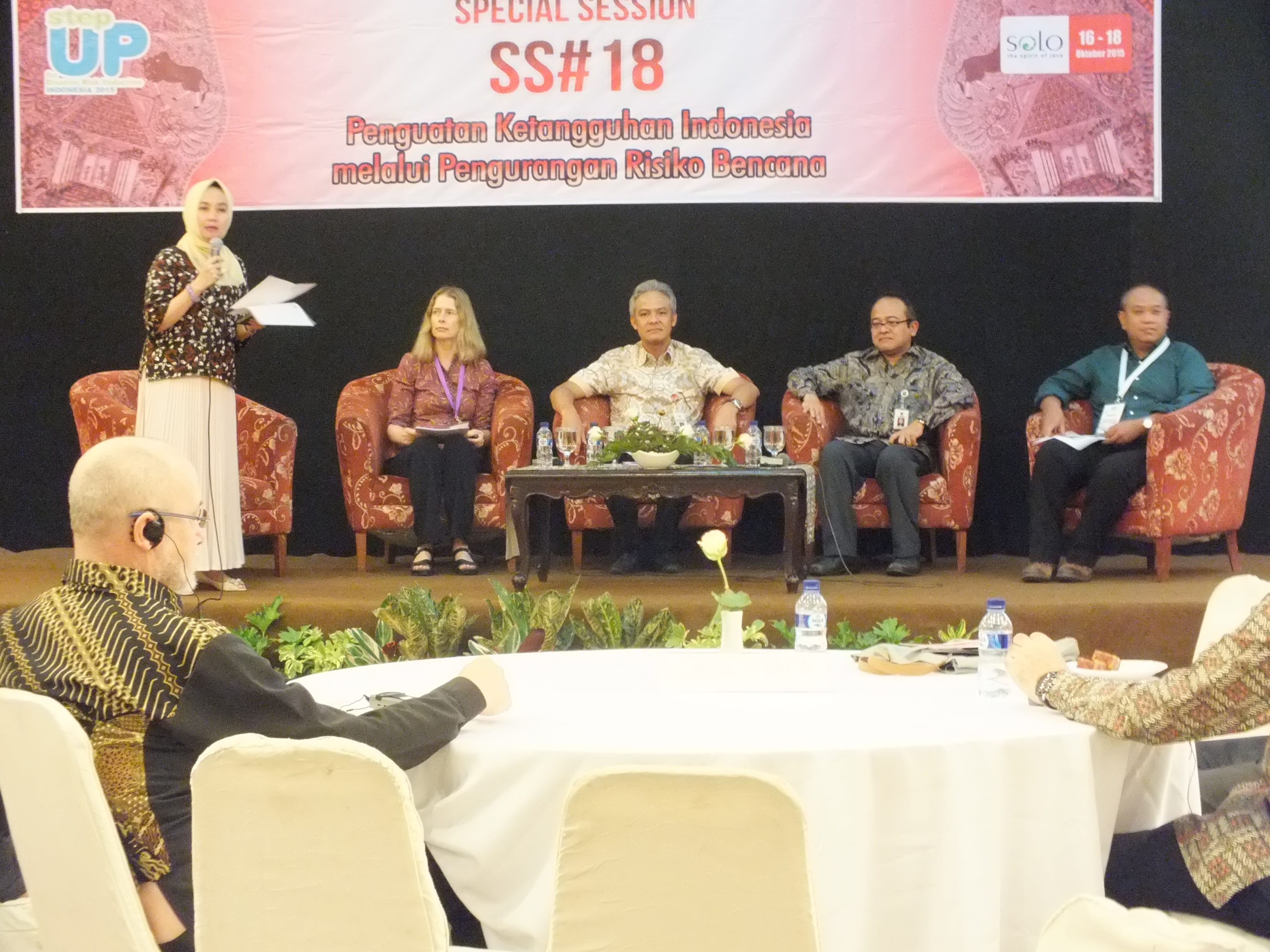
There was much spirited discussion from the audience, who raised issues ranging from the consideration of disabled persons in DRR planning, to difficulties with the rules around the use of contingency funds after a disaster. One thing that emerged from the discussions was the need to ‘make a start’. With long lists of tasks and limited budgets, the DRR path can be overwhelming. It’s important to remain focused, prioritise the work that’s needing to be done and take one step at a time.
The StIRRRD team also had a booth in the exhibition space which showcased the StIRRRD programme through videos and the UGM developed early landslide warning system. Our booth was fortunate in that the Governor together with the NZ Ambassador made a point of stopping at the booth and discussing the work featured.
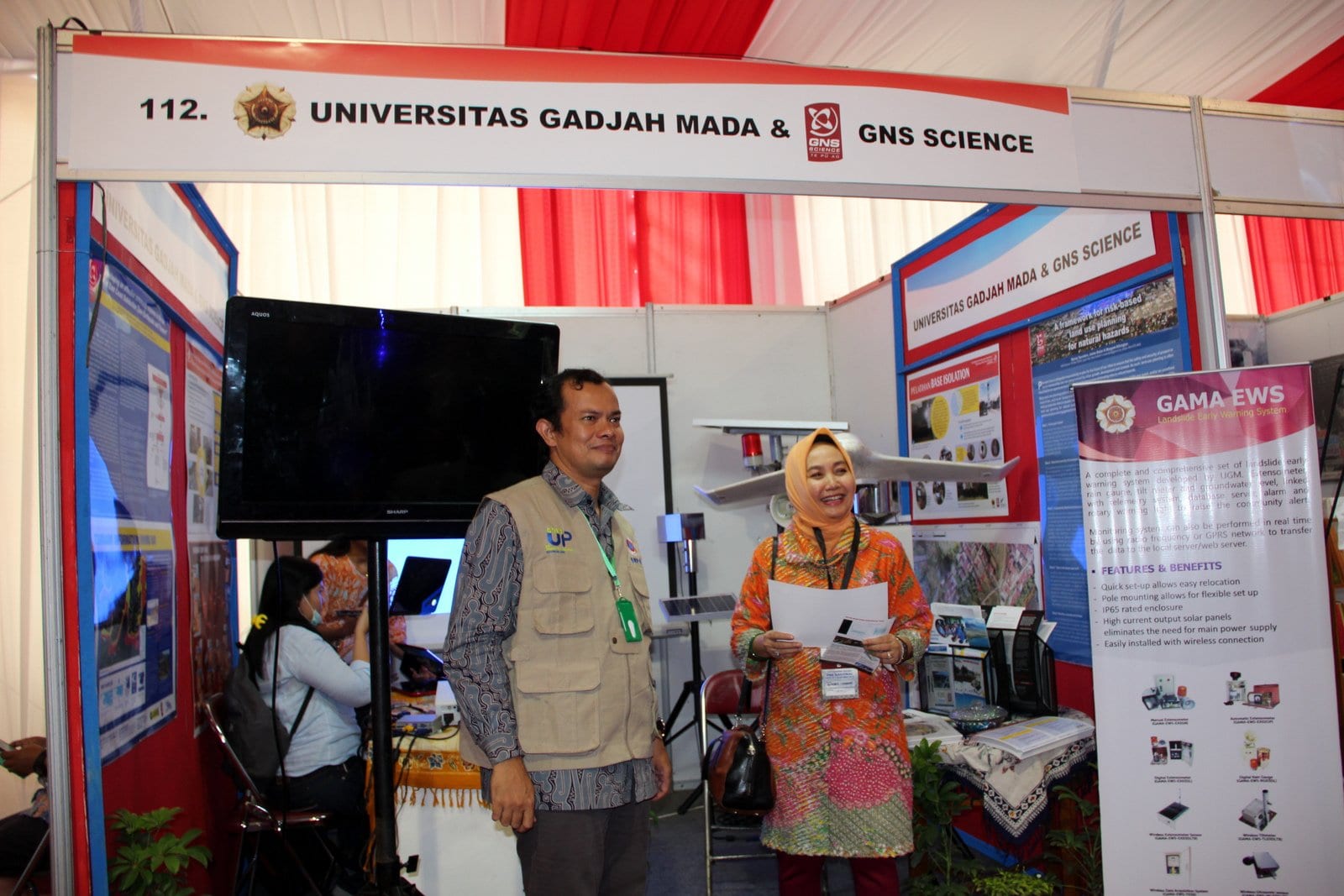
The very high level of participation in the event and the commitment shown by participants at the working and special sessions bodes well for the future and we hope that DRR ‘takes off’ and gets the priority it needs to have across all districts and provinces in Indonesia.
More information about the event and the ‘Solo Declaration’ can be found at
http://2015.peringatanbulanprb.net/
